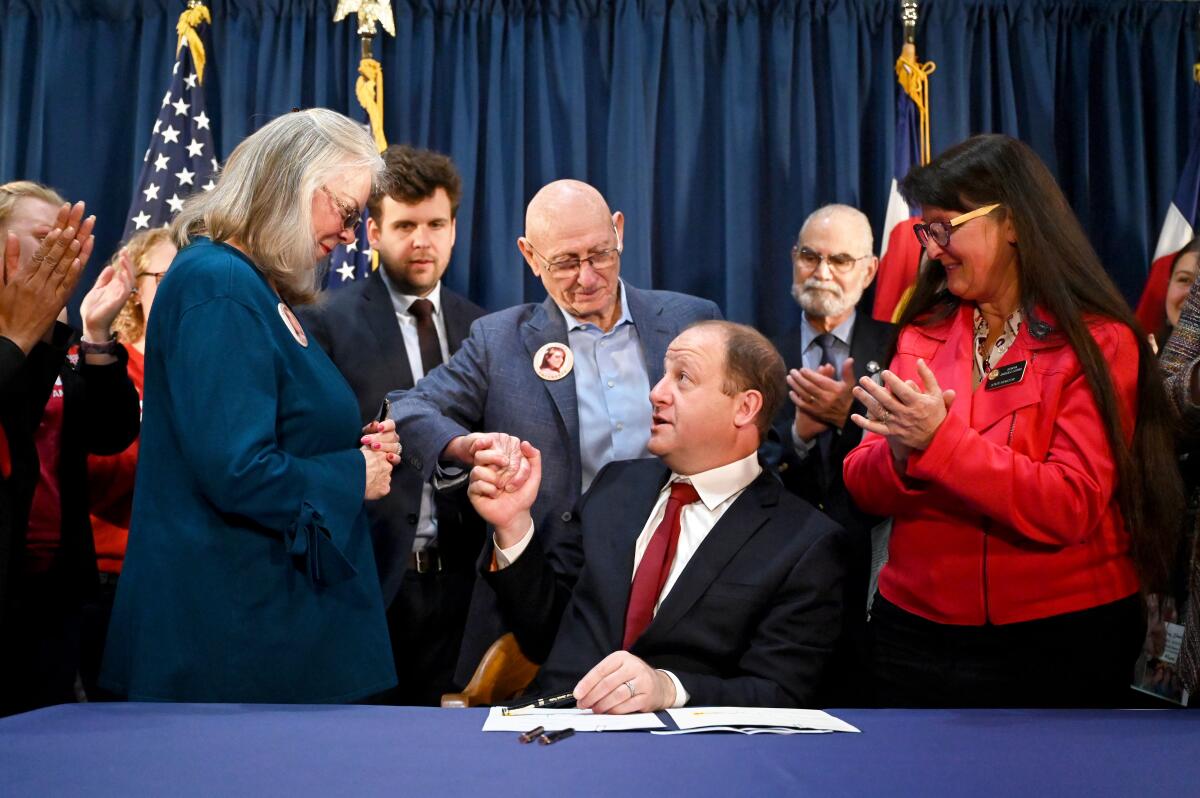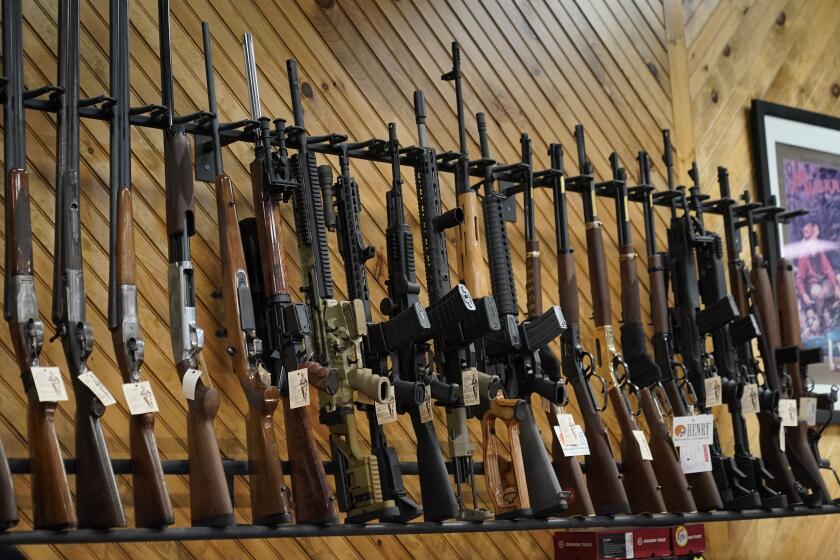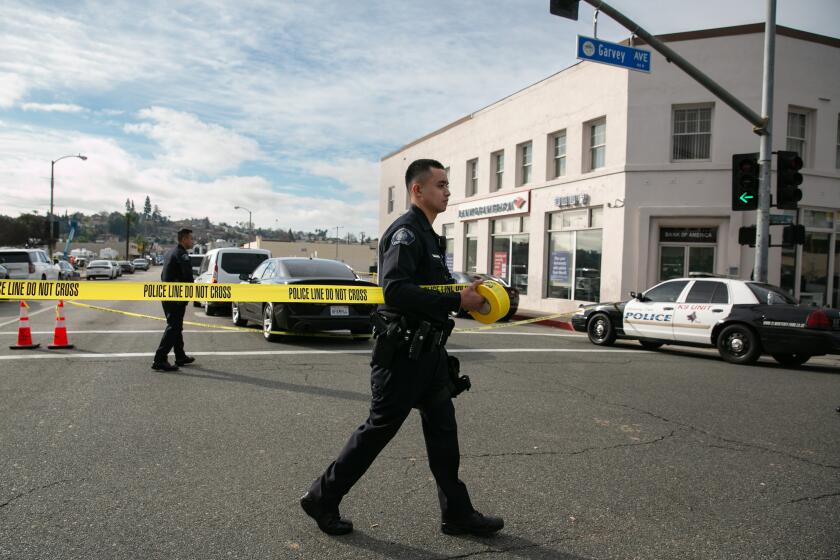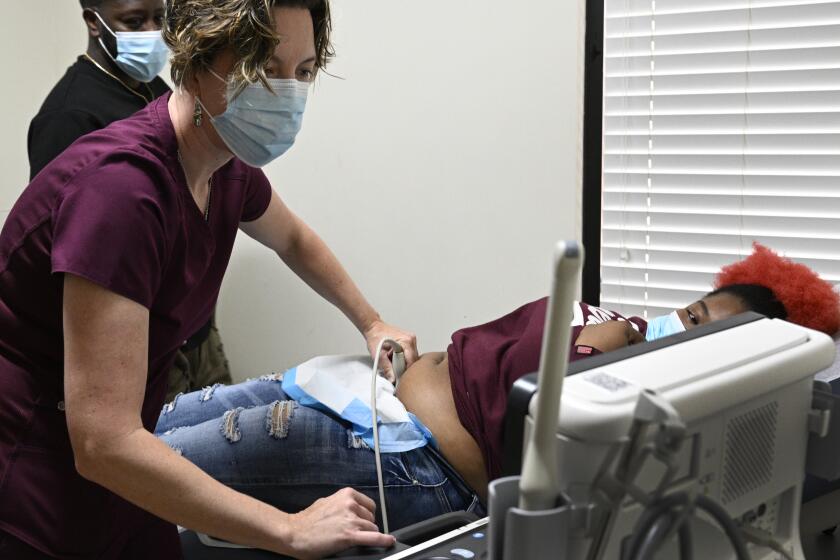Colorado governor signs gun control bills months after massacre

DENVER — Colorado’s governor signed four gun control bills into law Friday, following the lead of other states struggling to confront a nationwide surge in violent crime and mass shootings, despite a recent U.S. Supreme Court ruling that expanded 2nd Amendment rights.
Shortly after Gov. Jared Polis signed the bills, gun rights groups sued to reverse two of them: one raising the buying age for any gun from 18 to 21, the other establishing a three-day waiting period between the purchase and receipt of a gun. The courts are already weighing lawsuits over such restrictions in other states.
The new laws, which Democrats advanced despite late-night filibusters from Republicans, are aimed at quelling rising suicides and youth violence, preventing mass shootings and opening avenues for gun violence victims to sue the long-protected firearm industry, proponents say. They were enacted just five months after a mass shooting at an LGBTQ+ club in Colorado Springs.
“Coloradans deserve to be safe in our communities, in our schools, in our grocery stores, in our nightclubs,” Polis said as he signed the measures in his office. The Democrat was flanked by activists wearing red shirts reading, “Moms Demand Action,” and students from a Denver high school recently affected by a shooting.
Supportive lawmakers and citizens had tears in their eyes and roared their applause as the governor signed each bill. Colorado has a history of notorious mass shootings, reaching back to the Columbine High School massacre in 1999.
A new poll finds broad public support for a variety of gun restrictions, including many supported by majorities of Republicans and gun owners.
Republicans decried the bills as onerous encroachments on 2nd Amendment rights that would impede Colorado residents’ ability to defend themselves amid a rising statewide crime rate. Gun rights advocates pledged to reverse the measures, citing a U.S. Supreme Court decision last year in a New York case that expanded 2nd Amendment rights and opened the door for challenges to gun restrictions nationwide.
“It’s a sad day for Colorado; we are becoming one of the most anti-2nd Amendment states in the nation,” said Rep. Mike Lynch, the Republican minority leader.
A third measure passed by the Legislature will strengthen the state’s “red flag” law, and a fourth rolls back some legal protections for the firearm industry, exposing them to lawsuits from victims of gun violence.
Lynch anticipates that the magnitude of the gun restrictions — along with other bills Democrats pushed this year — will incite a backlash in the next election, especially in swing districts that helped reinforce Democrats’ majority in the Legislature.
The new red-flag law, also called an extreme-risk protection order, empowers those working closely with youths and adults — doctors, mental health professionals and teachers — to petition a judge to temporarily remove someone’s firearm. Previously, petition power was limited mainly to law enforcement and family members. The goal is to act preemptively before someone attempts suicide or attacks others.
Los Angeles County leaders approved gun control measures that would require firearms be safely stored and new restrictions imposed on gun store owners.
At the signing ceremony, Senate President Steve Fenberg, a Democrat and one of the bill’s sponsors, said Republicans and other gun control opponents often respond to mass shootings by saying it’s too soon to talk about restricting firearms.
“It isn’t too soon. It’s too late for so many of the lost souls,” Fenberg said. “We needed to have done more to prevent what happened.”
Republicans argued that the law would discourage people, especially military veterans, from being candid with medical doctors and mental health professionals for fear of having their weapons temporarily seized.
Lynch argued that though the shooting in Colorado Springs was often held up as a reason to pass these types of gun restrictions, “they would’ve done absolutely nothing to stop that.”
The law requiring a three-day delay between buying and receiving a firearm — an attempt to curtail impulsive violence and suicide attempts — puts Colorado in line with nine other states, including California, Hawaii and Florida.
A former abortion clinic in Alabama evolves amid bans on caring for uninsured patients and offering post-miscarriage treatment and transgender care.
Colorado has the sixth-highest suicide rate in the country, with nearly 1,400 in 2021, according to the Centers for Disease Control and Prevention. A Rand Corp. analysis of four studies found that waiting periods are linked to lower suicide-by-gun deaths.
In raising the minimum age to purchase a firearm from 18 to 21, Colorado joins California, Delaware, Florida, Hawaii, New York and Rhode Island. Proponents point to now oft-cited data from the CDC showing that gun violence has overtaken vehicle accidents as the leading cause of death for children and teenagers.
In their speeches about rolling back legal protections for gun manufacturers, lawmakers looked often to Sandy and Lonnie Phillips, whose daughter, Jessica Ghawi, was slain in the 2012 Aurora theater shooting. The parents tried to sue the companies that had sold the shooter ammunition and tear gas but were unsuccessful. Ultimately, the couple ended up owing more than $200,000 in defense attorney fees and had to file for bankruptcy.
California, Delaware, New Jersey and New York have passed similar legislation over the last three years. Opponents of the bill argued that it would merely bog down the firearms industry in bogus lawsuits.
More to Read
Get the L.A. Times Politics newsletter
Deeply reported insights into legislation, politics and policy from Sacramento, Washington and beyond. In your inbox three times per week.
You may occasionally receive promotional content from the Los Angeles Times.













